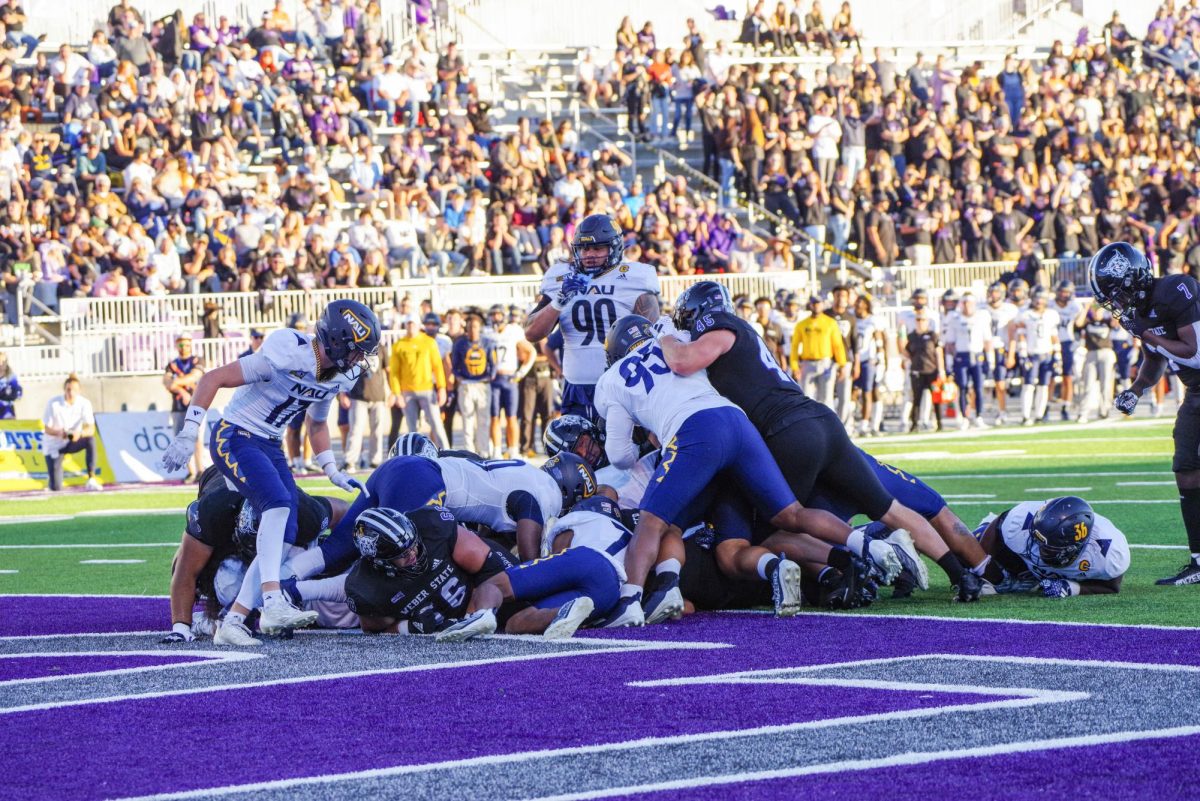[media-credit name=”Amanda Lewark” align=”alignright” width=”200″] [/media-credit]Many believe that Oktoberfest is just about drinking beer and eating bratwursts, but it’s also a celebration of German heritage, culture and tradition.
[/media-credit]Many believe that Oktoberfest is just about drinking beer and eating bratwursts, but it’s also a celebration of German heritage, culture and tradition.
“It started with the marriage of two families,” said Chase McFarland, a Weber State University student who attended the festival held by the Center for Diversity and Unity. The Oktoberfest celebration was held on Oct. 20th at WSU had hot dogs and punch for students (because beer isn’t allowed on campus). Along with food, the diversity center showed a documentary about the Oktoberfest festival. German flags and pennants were also displayed, along with a map of Germany.
The marriage of the two families was the Crown Prince Ludwig of Bavaria (who later became King Ludwig I) and Princess Therese of Saxony-Hildburghausen on October 12, 1810.
Horse races were presented for the royal family after the marriage and a decision was made to have the races annually, which turned into the tradition of Oktoberfest.
Because of the worse weather conditions in October, the festival was moved to September, so more people could enjoy being outdoors. The name has stuck, despite when the celebration is actually held. Over the past 200 years there have only been 24 times when the celebration could not be held, because of war and cholera outbreaks.
Most towns in Germany have their own brew of Oktoberfest beer, and brew it only once a year for the very occasion. There was almost 7 million liters of beer served during the 2007 festival. Traditional food is also served, such as: sauerkraut, hendl (chicken), schweinebraten (roast pork).
“The reason why we celebrate it here on campus is to celebrate diversity and because diversity is more than skin color,” said Adrienne Gillespie, the coordinator of the Center for Diversity and Unity.
The Center for Diversity and Unity also holds other holidays throughout the year for anyone of any culture. Gillespie even suggests to students that if there isn’t something being celebrated up on campus, to let her know so the center can plan an event to celebrate other cultures.
“It’s a way to come together, to learn a little bit, and if we have the same identity, to celebrate that with everybody. That’s what we’re in the business for up here,” Gillespie said.













